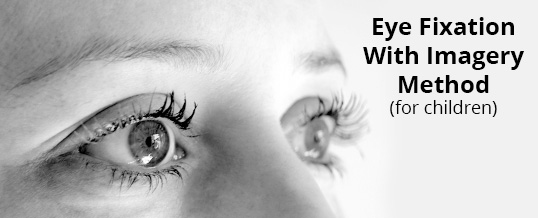INSTRUCTIONS TO HYPNOTIST
A tactile technique, such as holding a stuffed animal, may be appropriate for a 2-year-old. A 4-year-old may respond better to a rag-doll and a 6-year-old to a coin or television technique. Developmentally, a school child (7-11 years of age) may respond best to a favorite place technique and adolescent to sports imagery.
SPOKEN TO SUBJECT
(CHILD’s NAME) I would like to teach you something very special that you can learn, and with practice, you can get better and better. The first thing I would like to do is to have you hold this coin (give the child a quarter) up here. (Hypnotist puts coin between the child’s thumb and index finger and moves the arm and hand slightly above eye level) I would like you to stare at the coin and concentrate all of your attention on some special part of that coin, and as you do, just let yourself get more and more relaxed. As you get more and more relaxed, the coin will get heavier and heavier. As the coin gets heavier and heavier, you arm will also get heavier and heavier. In a moment, the coin will drop from your fingers and your eyes will close and your arm will come back down to rest in your lap. (Wait for response, and reinforce statements if necessary) We can now talk about some other pleasant things that can help you to become even more relaxed and comfortable. I would like you to imagine yourself at a wonderful picnic. This is the best picnic you have every attended – the sky is blue and clear, the clouds are just the way you like them, it’s just as cool and as warm a day as you would like it; just let it be the kind of day you would want it to be.
You might want to be at this picnic by yourself or by sharing it with some of your favorite friends and playing some of your favorite games. Somebody at this picnic (child’s name) has laid a very special blanket on the ground. I would like you to sit down on that blanket by yourself or with a friend. You find out that this is a very special blanket because you can make that blanket fly. You can make it go as high as you wish or as low, as fast or as slow; you can make it turn left or right, you can do anything you want the blanket to do. You are the pilot and you are in control. You can fly anywhere you wish and see anything you want to see. It is a wonderful feeling to fly along on your blanket, enjoying the day and being in control.
(NOTE: THE FOLLOWING TWO PARAGRAPHS CAN BE USED WHEN PERFORMING THERAPY)
Just enjoy what you are doing on this beautiful day, as you fly along, you might think for a moment (therapeutic suggestions and talk can occur here with the use of ideomotor signals).
(Continue to reinforce that the child is the pilot and in control) Anytime you want to go to this very special picnic and to fly on your blanket, you can do it – always remembering that you are the pilot and are in control. Every time you practice, it will get easier and easier to (therapeutic goal).
(NOTE: RETURN HERE FOR TRANCE TERMINATION)
And now, (child’s name), I would like you to land your blanket in a place that you like very much – a place back at the picnic where you feel comfortable and very relaxed and safe. When your blanket gently touches the ground, you can open your eyes, feeling refreshed, relaxed, and comfortable. That’s right. You did a swell job (child’s name). (Spend a few moments processing the child’s experience)
NOV

